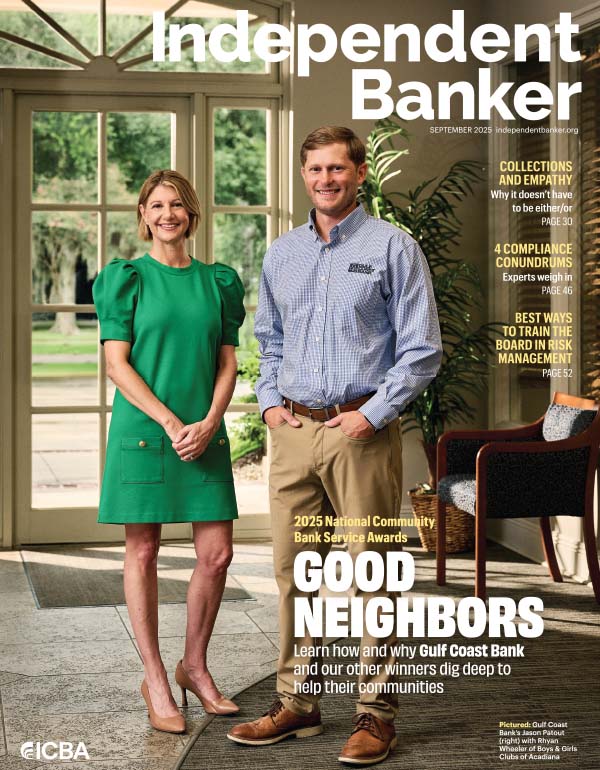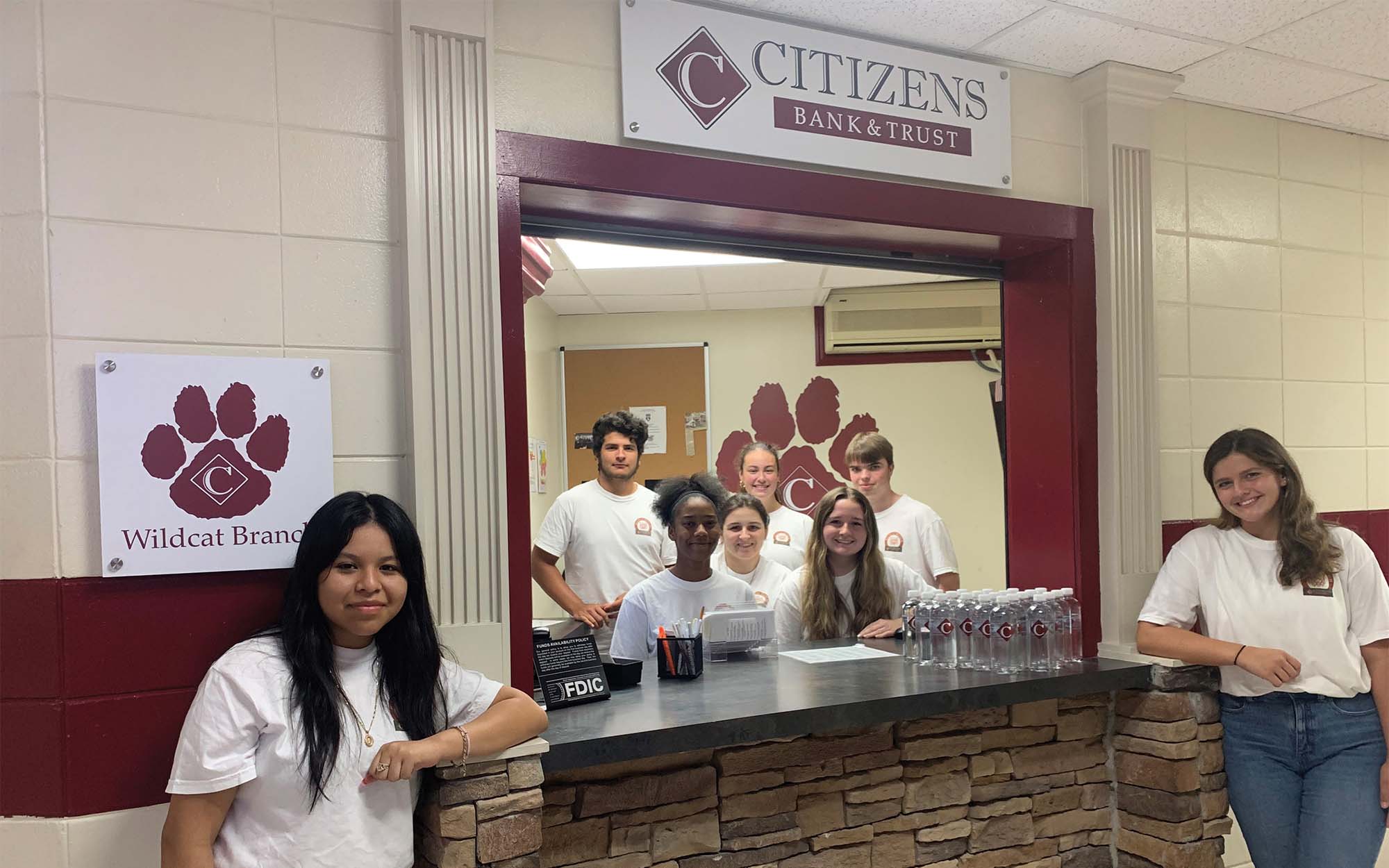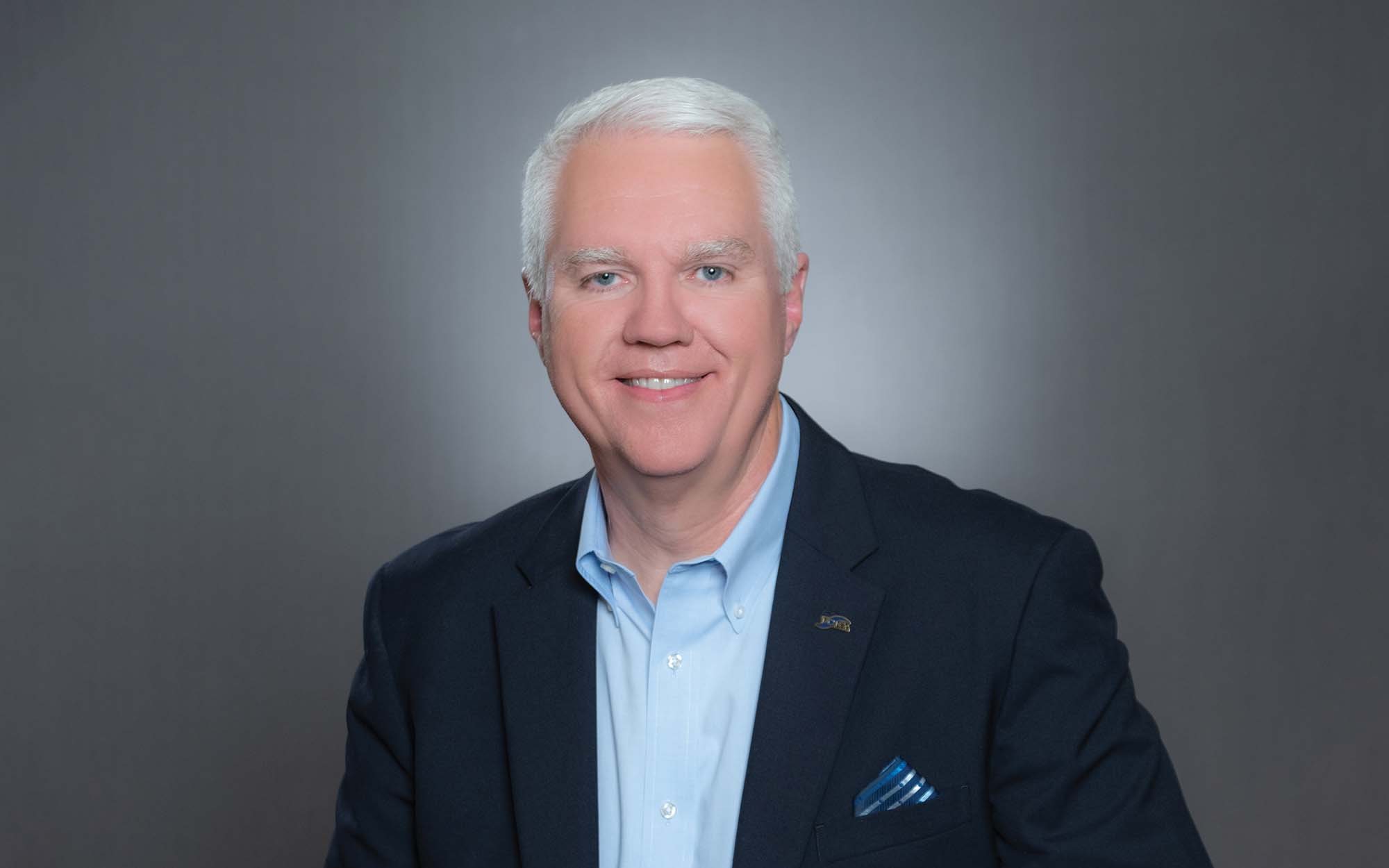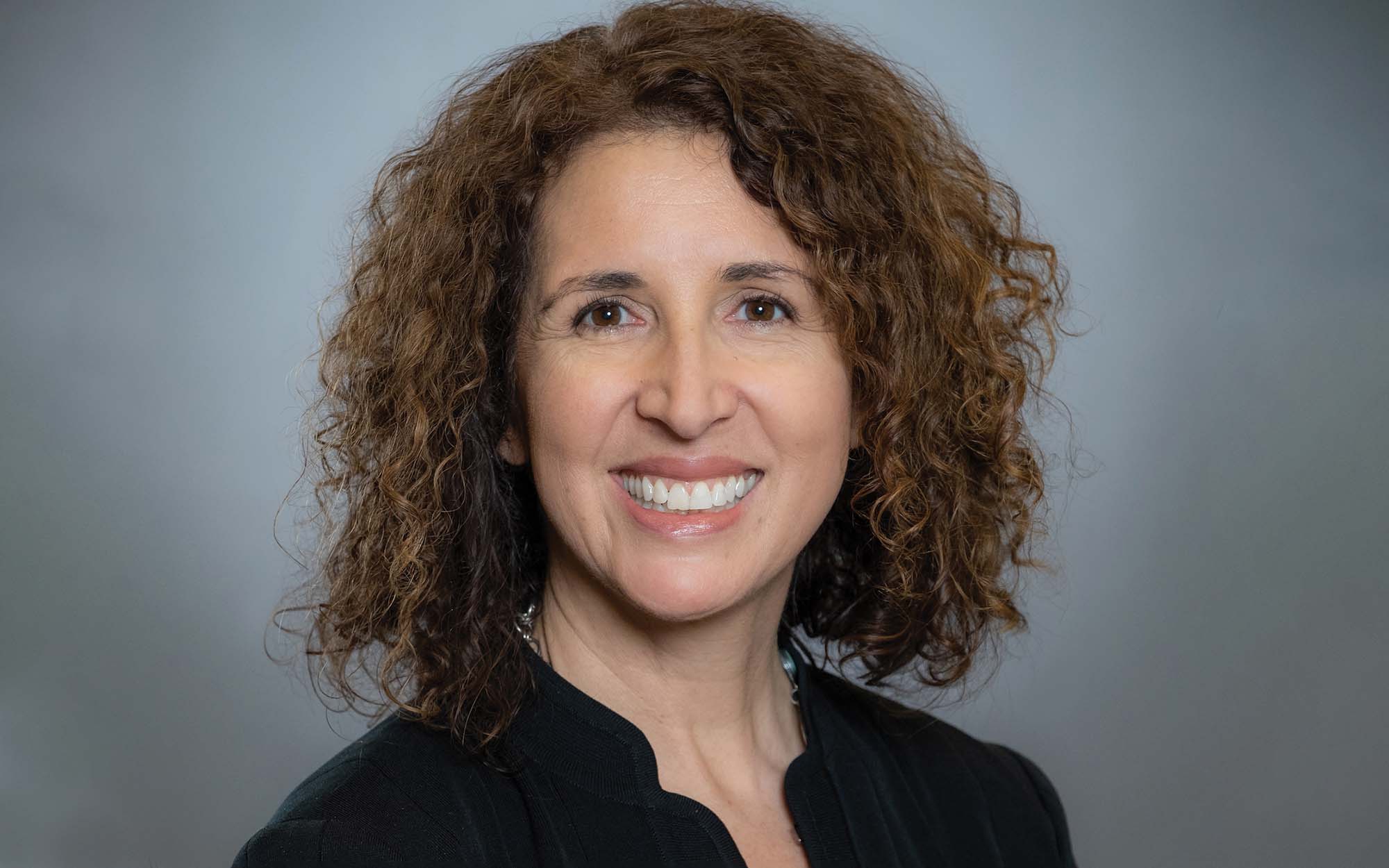Students typically go to school expecting to learn traditional subjects, such as writing, reading, math and history. However, students aren’t always given access to practical “life information” during their education, such as how to start and maintain relationships with banks.
Citizens Bank & Trust in Guntersville, Ala., has been working to change that for almost a decade. In 2014, Sam Pate, the $1 billion-asset community bank’s chief information officer, learned of a bank in Florence, Ala., that had partnered with its local high school and opened a branch on its campus.
“We were intrigued as to how that concept would work, so we set up a time to meet with the bank and tour the high school branch,” says Annie Furrer, Guntersville city president/SVP of Citizens Bank & Trust. “We loved the concept and believed we could make it work in our community.”
Pate and Furrer presented the concept to some of the administrators at Guntersville City Schools, who loved the idea.
“We explained that the bank would cover the cost of any build-out, and we would just need to be sure there was a class, teacher and students interested in participating to make it work,” Furrer says.
One teacher at the high school, Angie Blanchard, jumped at the chance to implement the concept with her students, serving as the “Wildcat Branch president.”
“We began a small remodel to convert a conference room into a school branch, complete with two teller windows and vault space,” explains Furrer. “Mrs. Blanchard helped us by marketing the class to students who could become potential tellers, who then completed an application and interview.”
Once selected, the students attended a training session during the summer to learn how to be student tellers. Training consisted of learning banking basics, how to conduct transactions, the history of Citizens Bank & Trust and the basics of customer service.
“As community bankers, we have the opportunity, or perhaps even obligation, to find unique ways to serve our communities.”—Annie Furrer, Citizens Bank & Trust
Students’ responsibilities
Student tellers do not have access to the bank’s core system, but they can conduct routine banking transactions like cashing checks, processing deposits and exchanging currency for students and faculty.
“The students and faculty appreciate the convenience of the bank and enjoy getting to interact with our student tellers,” says Furrer. The branch is open during lunch period so that students who need to visit the bank don’t miss class.
The student tellers also engage in two bank events held during the year: the Citizens Charity Classic and Citizens Business Summit. The Charity Classic is a golf tournament held annually to raise money for the local Fellowship of Christian Athletes at which the students serve more than 200 golfers. During the Business Summit, the students greet the attending 250 local business leaders.
“During both events, the students are encouraged to speak to and network with leaders in our community,” says Furrer. “They are able to build their confidence in speaking to leaders and are expected to dress and carry themselves in a
professional manner during the event.”
Helping their youngest customers
In 2022, Citizens Bank & Trust opened its second school branch location at nearby Albertville High School. The community bank duplicated the concept for the new “Aggie Branch.”
The bank’s Guntersville and Albertville branches have daily responsibilities for each high school, requiring a team effort from all sides. In addition to the two high school branches, the bank runs a savings program at two local elementary schools. When schedules allow, the high school tellers join a bank staff member at the elementary school once a week to help those students make savings deposits.
“We love getting to see the look of excitement on a child’s face when they bring their birthday money to deposit,” Furrer says. “Our goal is to show the students the importance of saving their money and establishing a relationship with a local bank.”
Most people do not wake up one day and decide to be a banker, notes Furrer. The community bank hopes that by engaging with local schools, it will not only promote financial literacy but also build relationships with younger generations who will be both future customers and employees.
In fact, over the years, several of the high school tellers have become part-time employees at the bank—some even working while going to college or during summer and winter breaks.
“As community bankers, we have the opportunity, or perhaps even obligation, to find unique ways to serve our communities,” says Furrer. “We believe that our school branch programs are making a difference in the lives of our students and schools. We enjoy showing that banking can be cool and even enjoyable.”






